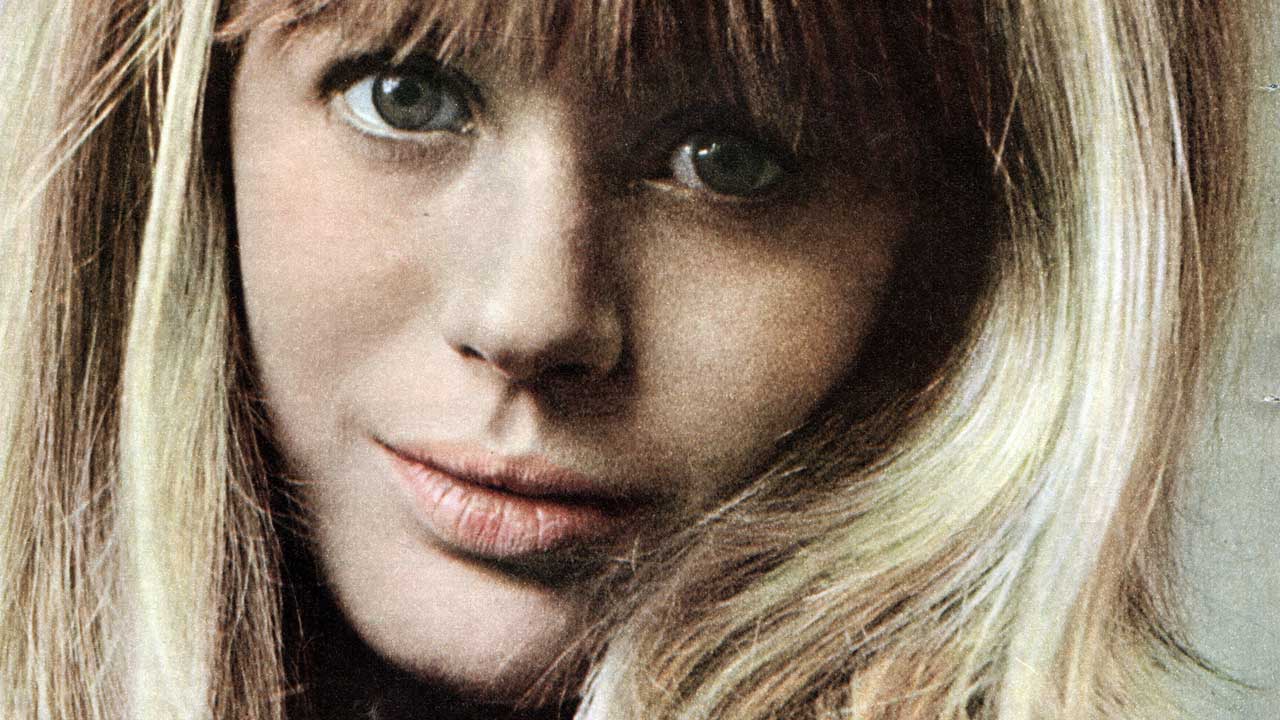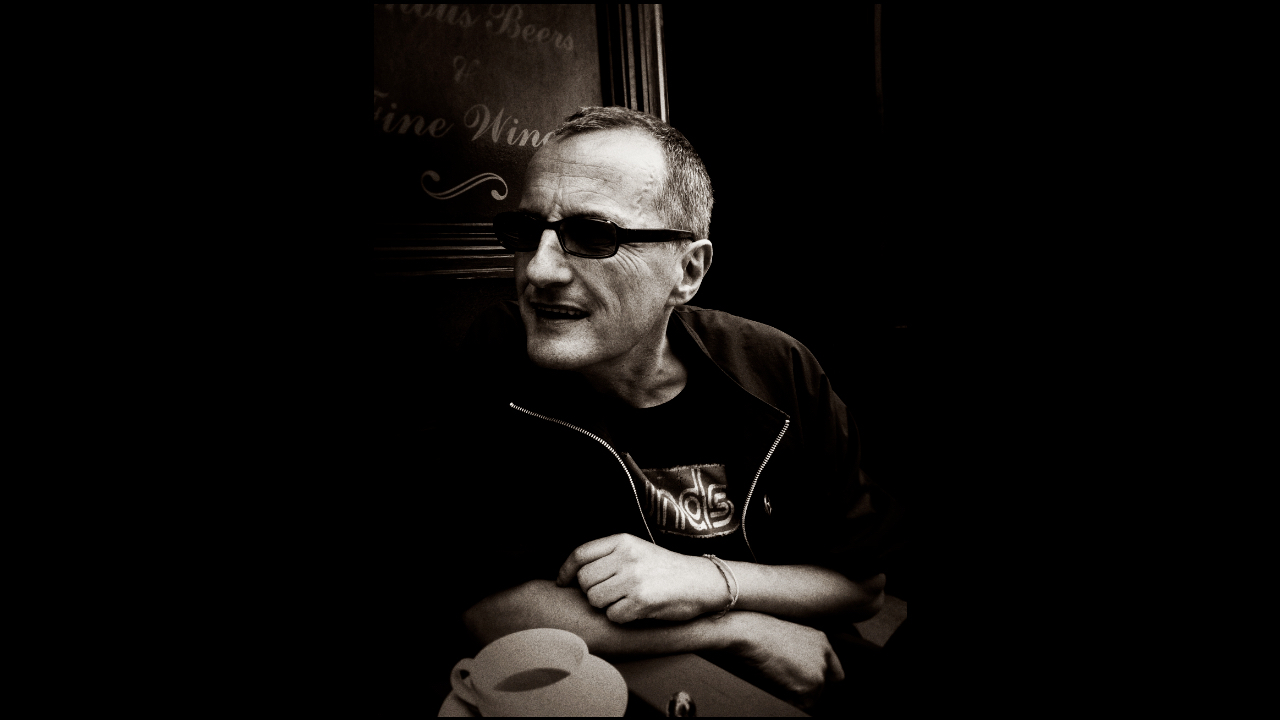Marianne Faithfull, the former convent schoolgirl who was discovered by pop guru and former Rolling Stones manager Andrew Loog Oldham and became Mick Jagger’s notorious other half and the Stones’ muse, has survived more than 50 years in a music career during which she has enjoyed chart success in the 60s, survived the lows of a debilitating addiction to heroin and made a miraculous comeback as a rock’n’roll torch singer and Riot Grrl icon.

Keith Richards
He’s one of my oldest friends. Keith likes women and doesn’t treat them like inferiors, and he particularly likes me. He sings a Merle Haggard song [Sing Me Back Home] on my album 2008’s Easy Come, Easy Go] I learnt about country music through listening to him and Gram Parsons singing along to hundreds of old country & western songs at his house in the 60s.
Of course, then Keith got very good at writing faux country music, don’t you think? Keith and I have always had a lot of respect for each other. He used to play little folk songs for me when I was quite young, and I don’t think he even liked folk music. He’s got a very catholic taste. He was very sober when we did our sessions. It was at the time that Patti [Keith’s wife] was ill, and he spoke a lot of sense. I think he always does, actually.
He’s got some things he really doesn’t approve of, as a gentleman – an outlaw gentleman. He doesn’t approve of too much promiscuity. And if you are going to have a fling, he doesn’t think anybody should know. I’m pretty sure he’s had little flings in the past but nobody knows about them.
He’s calmed down. We all have to as we get a bit older. I often wonder if Keith is an addict, because it doesn’t seem to affect him. He can speak, make friends and be funny. When he was young he was crippled with shyness, so maybe drugs and alcohol have made him a bit more outgoing. But he hasn’t really changed. He really is a bugger!
Kenneth Anger
This was, for me, an unfortunate relationship. I don’t think I would have bought the whole Lucifer Rising [film] thing if I hadn’t been so fucked up at the time. Drugs seem to give you that immediate wanting of people to be nice to you and you’ll believe anything, because your self-esteem goes. So I thought Kenneth liked me. I can see now he didn’t.
He was just like all those queens – he fancied Mick. Kenneth wanted to me to be Lilith in Lucifer Rising. I’ve never been attracted to black magic. Anita Pallenberg [former Keith girlfriend] was, but I wasn’t and I realised quite soon that I’d taken on something that I didn’t believe in and didn’t like. I should have never have done it. Kenneth believes all that stuff.
He laid a terrible curse on me when my book came out. I should have kept it. It was such an interesting document, all written out in blood – or maybe it was Max Factor. I just didn’t want it around, so I burnt it at a crossroads by a Lady Chapel. So far the curse hasn’t worked.
John Lennon
He was the most fab Beatle. I think it must have always been difficult for John to be a mop-top. He was a real rocker and a great musician. And so is his son, Sean. I also made very good friends with Yoko. I love John, but I never got that close to him; it was impossible.
Once I chose to go off with Mick, I lost John. He was great friends with my first husband, and there was a split there. But I know John kept an eye on me. He loved my version of [Lennon’s] Working Class Hero; Yoko told me after he died, and that meant an awful lot to me.
Jimi Hendrix
I went to see him at his first show in a club in London called The Bag O’Nails. I was the only person there, apart from the roadies and Chas Chandler [Hendrix’s manager]. Obviously he saw me there, and he did this whole show to me. It was magical. I met him quite a few times, and he always came on to me a bit strong and I couldn’t do anything, I was with Mick. I would’ve have loved to. Actually, quite frankly, if I hadn’t been with Mick I would’ve gone off with him. Jimi is my biggest regret.
William Burroughs
I really loved William. In the 60s I could never talk to him because he didn’t like women, obviously. Pretty girls like me were not considered interesting by these gay intellectuals. I was smoking pot and doing a bit of coke, but I wasn’t in his league at all. Naked Lunch and a lot of his books were the reason I decided to live on the streets and become a registered heroin addict.
I was following what I thought William was saying. I was very enthusiastic; I thought it would be wonderful, and it wasn’t. Years later I made an appointment to meet him at breakfast and I actually asked him directly: “Did I read it wrong that I thought what you were saying was to live on the streets and be a junkie?”. He said: “You took it much too far. It wasn’t your place to do that”. He also added that lots of people had asked him the same question.
Jimmy Page
I’ve known Jim since he was a session musician – a really great one. He played on all my early recordings. So did John Paul Jones. I knew Jim quite well, and liked him and trusted him. He wrote Come And Stay With Me for me, which became a hit. I’ve seen him a bit since he’s got clean, and he’s gone back to what he was always like; his beauty has come back.
Eric Clapton
I used to go out with Eric to get my drugs and fixed by Alex Trocchi [famous 60s beat writer]. Alex was my drug guru and he was also Eric’s. I used to meet Eric on Observatory Hill with his then girlfriend Alice [Ormsby-Gore, Lord Harlech’s daughter], and we’d all trot up to Alex’s flat and he’d shoot me up. I don’t think Eric ever shot up, he just bought pure heroin.
He was very quiet. He was either withdrawing or very stoned, so you couldn’t really talk to him. I knew him before he started taking drugs, and he was much more outgoing and confident. Everybody seems to lose their self-respect when they start taking drugs, they’re not sure of themselves. Keith often does a very good impression of being sure of himself.
Bob Dylan
Ah, well, that’s another one, isn’t it? He was amazing; he was also very fucked up at the time when I met him, during the Don’t Look Back period. I was really young, 17, pregnant and I didn’t do drugs. I just remember him and his entourage at the Savoy going into the bathroom for hours. I didn’t know what was going on, but I was so furious. And I think that’s when I said to myself: “I’m never going to be locked out of the bathroom again”. I wanted to be with the boys doing drugs.
Metallica
I was in Ireland, living in my little house, when I got the call saying: “This is Lars from Metallica. We want you to do a song”. I knew who Metallica were; I never thought they’d want me to do something with them. At first I didn’t believe it, but they were really serious. James and Lars came over in a private aeroplane to Dublin. I met them in a car and we went to the studio. And I thought The Memory Remains was a lovely song.
I could understand immediately what they wanted me to do – I think they wanted the ‘wounded woman’. Of course, I was never really as wounded as everybody thought, so they had to get over that. But they took it all in their stride. I remember one night we went to a restaurant and I took Anita [Pallenberg] and we entertained them with stories all night. They loved it. They were great, I really like them.
We’re still very good friends. They’ve all gone through a lot. I think James had to go through treatment. Often that can be a very good thing; it depends on the quality of the person. If they’re just an asshole, they’ll be an asshole after treatment, just an asshole not doing drugs. But James isn’t.
This feature originally appeared in Classic Rock 131, in May 2009. The reissue of Marianne's Vagabond Ways is out now.

